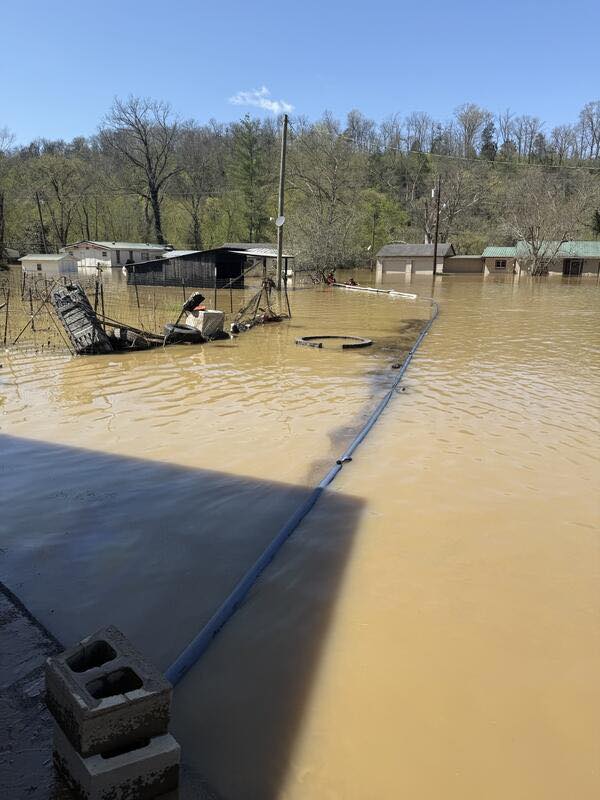Flood-contaminated food can cause health risks; here are some food safety tips from Louisville health officials

Kentucky Health News
As Kentuckians return to their homes after the flood to clean up, public health officials in Louisville warn that one of the biggest health risks is contaminated food.
Floodwater often carries bacteria, chemicals and other pollutants that can make your food unsafe to eat. Here are some food safety guidelines from Louisville Metro Public Health and Wellness:
Discard food touched by floodwater: As a rule of thumb, discard any food that has been touched by floodwater. This includes:
- Fresh produce.
- Meat, poultry, fish and eggs.
- Dairy products.
- Open containers and packages.
- Food in cardboard boxes, paper or plastic wrap.
- Home-canned goods.
Even if items are sealed, like jars or cans with screw caps, corks or snap lids, they are not considered safe if they’ve been submerged or even splashed by floodwater.
Inspect canned foods carefully: Commercially canned foods with sealed, undamaged metal lids may be safe if properly sanitized. To clean them:
- Remove labels (which can harbor bacteria).
- Wash cans in hot, soapy water and rinse.
- Sanitize by soaking in a solution of one cup of bleach and five gallons of water for 15 minutes then soak in clean water for at least one minute.
- Re-label with a marker, including the expiration date.
Clean your kitchen thoroughly: Before using your kitchen again, thoroughly clean and sanitize all surfaces, including counters, shelves, appliances and utensils.
- Disinfect with a solution of 1 cup of bleach in five gallons of water.
- Allow the surface to remain wet for at least one minute, then rinse with clean water.
- Discard wooden cutting boards, plastic utensils, baby bottle nipples and pacifiers if they’ve been exposed—they’re difficult to fully disinfect.
Check your refrigerator and freezer: If the power was out for more than four hours, most refrigerated foods should be thrown away. Freezer items may be safe if they still contain ice crystals or remained below 40°F. When in doubt, throw it out — don’t taste food to check if it’s safe.
Flood-contaminated food can cause serious illness. It’s better to err on the side of caution and dispose of questionable items. Always prioritize safety over salvaging.